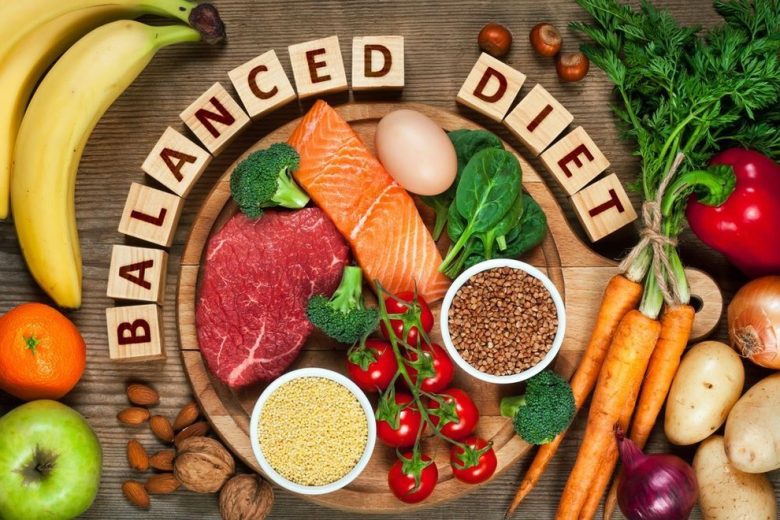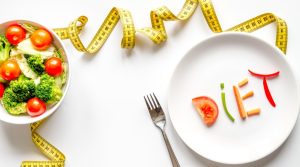Satisfying hunger is on most people’s list of things to do with enjoyment, though it can also bring about perplexity of a particular kind. People are on particularly high alert considering the amount of information that is available out there with regards to diets and nutrition in general. What would a balanced diet look like? And why should anyone even care?
Balanced diets concern looking after one’s health with efficient management of various food types, not just binge fat diets, calorie counting, or fasting. It’s a plan or a way of life that stresses on distribution and moderation so that the individuals receive all the fundamental constituents needed for good health.
Regardless of whether you want to boost your energy, help your body fight off diseases, or simply want to be more comfortable in your clothes, mastering the principles of a balanced diet might just be the missing link that cuts across this greater need for a healthier living. Ready to learn what this concept entails and how its various aspects may be easily applied in one’s everyday life?
What is a Balanced Diet?
To put it simply, a balanced diet contains all the food components that are important for the body. Consider it a plate of colors where fruits, vegetables, whole grains, proteins, and healthy fat coexist. All the food groups are quite beneficial for the health. Fruits and veggies have lot of vitamins and minerals. Whole grains provide fiber as well as energy for a long period of time. Proteins assist in the repair and building of muscles whereas, healthy fats facilitate the absorption of useful nutrients.
Being in balance does not mean starving yourself. It encourages balance among food habits and choices that are healthy but still enjoyable. It is practically all about the same mix of macronutrients and micronutrients and their appropriate mix and amounts so as to achieve a good task for the day.
The Importance of a Balanced Diet:
It is very important to use a balanced diet to maintain normal functioning and overall health. It supplies the organism with absolutely everything it requires for normal activity. It helps the person who aspires to consume healthy and as varied diet as possible.
This variety also helps in sickness immunity, enhancing the brain, and facilitating power consumption longer in a day. A healthy nutrition can as well be useful in easing the onset of chronic ailments such as heart attack or diabetes.
Having well distributed meals equally aids in the digestion process. Fibers that are important to some body organs like the stomach can be obtained from fruits, vegetables, and whole grains. Further, healthy eating practices help control one’s emotion by regulating the levels of sugar in the blood. With each meal evenly weighted, you give your body all the support it needs to thrive instead of just getting by. Such focused strategies encourage healthy behaviours that are much more than just diet.
Macronutrient Components and Their Proper Application:
Macronutrients are a very important part of any balanced diet. There are three major components: carbohydrates, proteins, and fats. Each of these has its own importance in the maintenance of health.
Carbohydrates are the heart of every physical activity, as they give the body strength. The energy needed from such foods is derived from fruits, grains, and vegetables in order to carry out normal activities, including training.
Proteins are the building blocks for cells in the bodies and are required in any form of growth and repair processes. They are necessary in the development of the muscles and immune systems. They can be meat, beans, nuts or dairy products.
Fats very often get a bad reputation but are important as well. For example, fats found in avocados or olive oil are beneficial to the brain as well as hormone production.
Making sure that you have all these macronutrients in adequate proportions ensures that your body operates at maximum capacity. Quantity is not the issue, but quality. The choice of whole food as a source can make a difference on a daily basis.
Micronutrients: Realizing Maximum Health
Micronutrients are critical in the achievement of overall health. These vitamins and minerals are constituents of body activities; however, they are consumed in less quantity as compared to macronutrients.
Vitamins such as A, C, D, E, and B-complex control all the activity geared towards immunity and energy generation. Iron, calcium, magnesium and other related minerals enhance bone and muscle health.
Lack of these nutrients may cause adverse conditions of health. For instance, vitamin D deficiency can make bones weak, while a person with iron insufficiency may have anemia.
Having an assortment of fruits and vegetables of different colours on your plate also provides you with different micronutrients that are needed in your body. Minced meat and whole grains also offer these essential minerals needed for the operation.
Micro but beautiful, these nutrients can be the last ones that you miss out on utilizing to achieve optimal health. They improve your energy levels and allow our systems to function efficiently every day.
Common Myths Related to a Balanced Diet:
Most individuals think that a balanced diet is associated with a lot of calorie counting. Such an idea may lead to many complications and an unhealthy view of food. The focus is not on limits but on quality and quantity of food taken at different times.
One more incorrect view of people is that all types of fats are harmful. Some positive fats found in foods such as avocados and nuts are very useful. They aid in the maintenance of the body by protecting the brain as well as assist in the absorption of some crucial vitamins.
Others feel that in order to shed some weight, they must cut out all the carbs altogether. However, obviating the carbohydrates is not a solution for a lot of people since carbs give a lot of energies needed in every day undertakings and hence needs to be embraced in any meal plan.
Another false belief is that one cannot maintain a balanced diet because it is either costly or tedious. Making nutritious meals does not have to be expensive or labour-intensive; it just requires some forethought. The use of fresh food doesn’t mean that it will involve excessive shopping or lengthy hours of cooking.
Conclusion:
To begin with, an adequate diet is a prerequisite for good health. This nourishes both physically and psychologically a person for the daily endeavours. Thus, adopting such a lifestyle could help one to have more energy and more stable moods as well. The right nutrients will ensure that the body has a robust defence system and also help in appropriate growth. It is very important to know how various food categories work with each other. At every sitting, each of us has the chance to satisfy ourselves with different options for beautifying each meal.
Achieving that balance is a process that takes time but one that has great dividends in terms of one’s health. Progressively, small changes will go a long way in developing long-lasting habits that will be imperative to one’s health. Develop an interest in your selections and be comfortable exploring different foods that have a high calorie content without caloric sweeteners, starches, or refined flours as much as possible.
This progressive movement towards better nutrition can be made with delight instead of restriction. It is beneficial to keep in mind the fact that not only is the content important but also the manner in which it is presented. Appreciate all the healthy food you will take in along this journey.
FAQs:
1. What is meant by the concept of a balanced diet?
In basic terms, a balanced diet is one that contains all the essential foods in appropriate amounts. It is normally composed of fruits, vegetables, cereals, protein such as meat and legumes, and fats. This guarantees that one gets all the required content of the body.
2. Will I be able to lose weight while following a balanced diet?
Indeed, you will! The concept of a balanced diet allows you to watch the quantity of food consumed and the kinds of food taken. By concentrating on these approaches rather than extreme and extended deprivation or fad diets, it is possible to lose weight that can be maintained as opposed to regaining it back while still enjoying foods.
3. Do carbohydrates have a negative effect on me?
Not at all! Carbohydrates are an important energy fuel for the body. The trick is to ignore sugars in processed foods and instead use carbohydrates from whole grains, as they are referred to as simple carbohydrates.
4. Characteristics of a balanced diet: am I required to take in any supplements?
In most cases, supplements would not be required for one as long as there is consumption of a wide array of foods from the different groups. Nevertheless, some benign situations, e.g., being pregnant and other ailments, may warrant augmentation of some nutrients.
5. How will I know if it is a balanced bu eating?
Consider how colorful the plate you have at every meal. Try to encroach fruits and vegetables of various colors as well as protein and whole grains. You can log your food intake into an app or a journal to help track and provide balance eventually.




